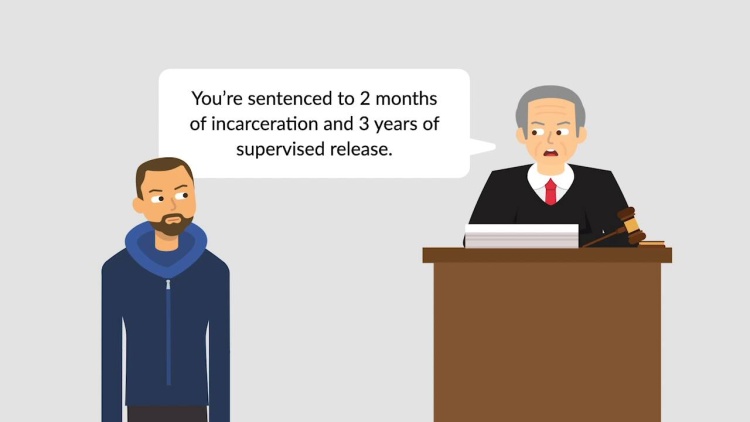United States v. Gementera
United States Court of Appeals for the Ninth Circuit
379 F.3d 596 (2004)

- Written by Sara Rhee, JD
Facts
Shawn Gementera (defendant) stole several pieces of mail from various San Francisco, California mailboxes and was charged with mail theft. After entering a guilty plea, the trial judge ordered a pre-sentence report prepared on Gementera’s background. Although Gementera was only 24-years-old at the time of the mail theft charge, he had a long criminal history. The district court, relying on the United States Sentencing Guidelines, sentenced Gementera to two months incarceration and three years of supervised probation. Gementera was also sentenced to perform 100 hours of community service standing outside of a post office building wearing a sandwich board sign that said, “I stole mail. This is my punishment.” Gementera filed a motion to remove the sandwich board portion of his sentence. After the prosecution and defense counsel submitted alternative sentencing recommendations, the district judge modified the sentence. After Gementera served his two months of incarceration, he was required while on supervised probation, to (1) observe postal customers visiting the “lost or missing mail” window at a post office facility, (2) write letters of apology to the known victims of his mail theft crime, (3) deliver several lectures at a local school, and (4) stand outside a postal facility for one, eight-hour day wearing the sandwich board with the same language mentioned above. Gementera appealed, arguing the district judge’s sentence violated the Sentencing Reform Act, 18 U.S.C. § 3583(d).
Rule of Law
Issue
Holding and Reasoning (O’Scannlain, J.)
Dissent (Hawkins, J.)
What to do next…
Here's why 909,000 law students have relied on our case briefs:
- Written by law professors and practitioners, not other law students. 47,100 briefs, keyed to 997 casebooks. Top-notch customer support.
- The right amount of information, includes the facts, issues, rule of law, holding and reasoning, and any concurrences and dissents.
- Access in your classes, works on your mobile and tablet. Massive library of related video lessons and high quality multiple-choice questions.
- Easy to use, uniform format for every case brief. Written in plain English, not in legalese. Our briefs summarize and simplify; they don’t just repeat the court’s language.





